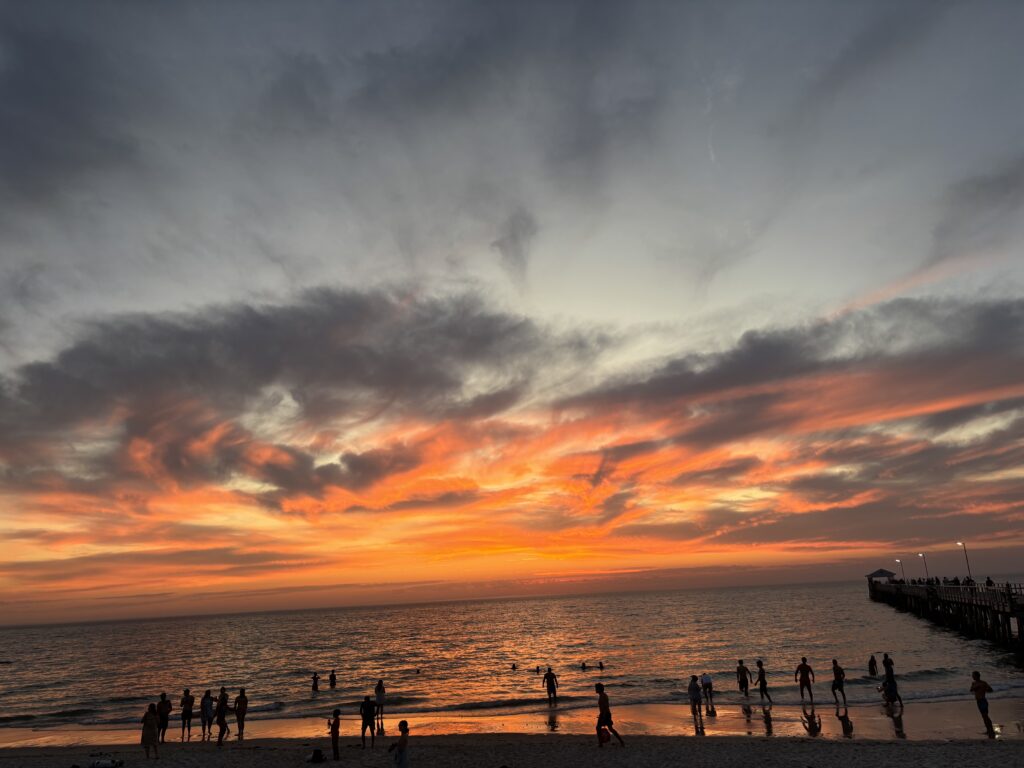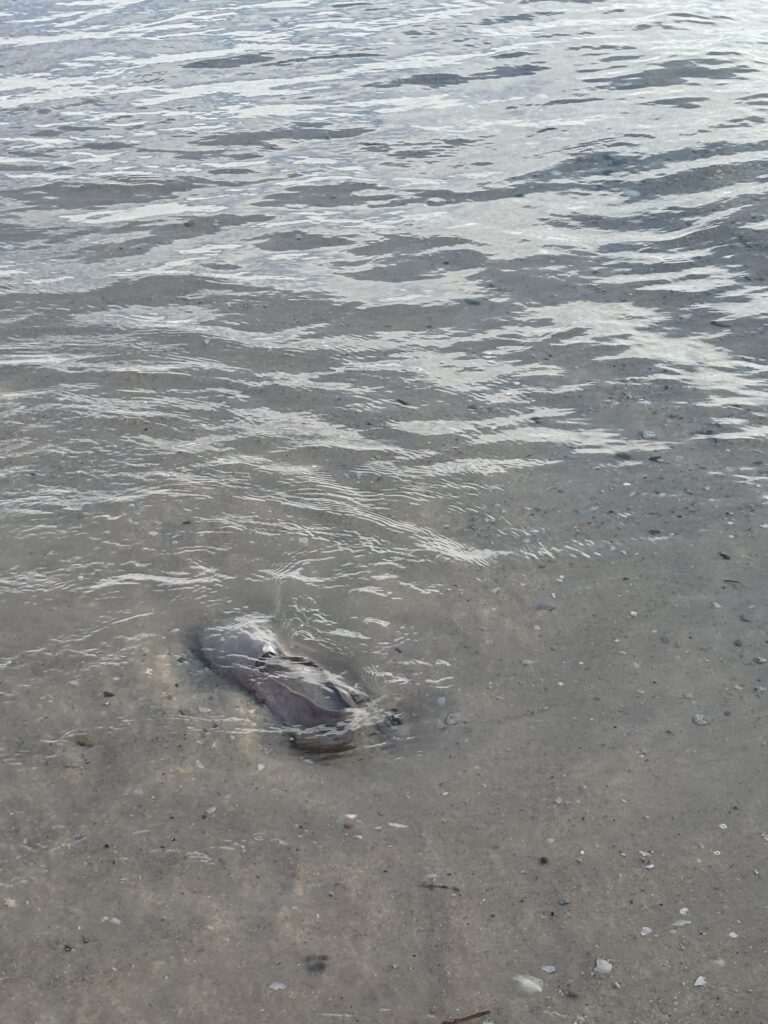Shefali Elizabeth Mathew, University of South Australia

It has been seven months since I’ve come to Adelaide and I am on my way to Henley beach. I am writing on the bus with a purple glitter pen. There is so much love here, I feel so happy, but also sometimes I feel a great expanse within my body, a hole, a space. As I walk down the street that leads away from the house where I’ve rented a room, I can feel the hole in my body call for home.
The houses down the street are beautiful—large buildings with large windows and gardens that are alive. I am especially intrigued by one where the garden dips, and you have to walk down steps to reach the door. I google houses often, calculating how much time it would take for me to be able to own one but the possibility, though exciting, is not one I really believe in. I walk past a tree, its tiny star-shaped white flowers get caught in my hair and I think of the flowers I am named for—the night flowering jasmines. Do I know how to bloom at night? I don’t think so. I look at the houses and I imagine my dream house. What would it look like? The expanse within me clenches. What does home look like when home is really an ocean away?
As I walk down the road I remember that the very act of walking past these beautiful houses with their beautiful gardens is a privilege I have been afforded. I do not know my neighbours, but I know that everyone I have seen walk down this street, is an immigrant. This land I walk on, these homes I pass, they’re the remains of a history of colonization. But then, so am I.

I never learnt my mothertongue. When I was a child and people tried to teach me, I cried because I could not hear the subtle differences in sounds; I could not pronounce correctly. I stopped trying, and now I still do not have the energy to completely devote myself to it. The guilt I feel that I have not learned the words of my ancestors is one that rests heavily on me, one I find difficult to work through. I speak English and because of that I have had the opportunity to do this PhD in Creative Practice.
I have lived a privileged life in many ways – I’ve never had to struggle for a place to stay, food to eat or clothes to wear. I have never felt like I didn’t have love. These feel like privileges because so few people have this, but perhaps, they should be rights. The privilege that bothers me most is my language. That this gift through which I see and shape my world, these sounds that have given my writing a voice, is my true privilege. The language belongs to me and yet it doesn’t. These streets are the same. I know them but I do not. The language that is my home is not the language I was meant to have. I speak with the privilege of a voice in English. I speak with the privilege of speech.
When I return to my room from the bus, I am sleepy, my body shutting down. On my bus rides I feel a deep happiness because they are taking me to the sea, but the way back is always long. I am writing these words in my room, on my laptop, and I learn as I spend some time on the Campbelltown City Council website that in 1932, during the Great Depression, the Municipal Tramways Trust decided to try building an electric trolley bus, from Payneham to Paradise, making Adelaide the first place in Australia to use the trolley bus. In 1932, in India, the Poona Pact was negotiated between Gandhi and Ambedkar in the movement for representation for the Scheduled Castes. When we debate reservations in India, it is hard to explain the centuries of oppression that have made it important or the fact that minorities need to be represented. A lot happens over a century but a lot also happens over a year. With the world at war, with so much fear and hatred and people unable to use their voice, I often feel scared. It is 2025 and we have moved to petrol buses. I get in and the bus winds its way to Henley Beach. It is 2025 and we are still arguing about reservations in India. It is 2025 and I do not know the language of my ancestors, but I do know the language that was used to oppress my country. In 2025, I take this language and turn it over and speak it and it becomes mine, and I give it voice. There is much in me that is flawed but when I reach the sea, I remember that there is an expanse outside me. I throw my words into the world, I still do not know the answer, cannot find a solution even as I hope for one, even as I see those around me create one. Water moves through me. And for a moment, even without everything that defines me, I am home.
Acknowledgements: The author would like to thank Dr Amelia Walker and Dr. Reena Mary George for their valuable feedback during the writing process.
About the Author
Shefali Mathew is the Sir Terry Pratchett Memorial Scholar at the University of South Australia. Born and raised in Vellore, India, she is a graduate of the Iowa Writers’ Workshop, where she was supported by the Tara and Jasubhai Mehta Fellowship, and the Sonny Mehta Fellowship. She is also the recipient of the Arthur James Pflughaupt Fellowship and was a finalist for the Halifax Ranch Prize. Prior to her time in Iowa, she taught at St Joseph’s University, Bangalore.
Works cited
Poona Pact 1932 (B.R Ambedkar and M.K Gandhi) Archives. (n.d.). Constitution of India. Retrieved May 2, 2025, from https://www.constitutionofindia.net/historical-constitution/poona-pact-1932-b-r-ambedkar-and-m-k-gandhi/
The Payneham to Paradise Trolley Bus. (n.d.). Campbelltown Local History Stories – Events. Retrieved May 2, 2025, from https://www.campbelltown.sa.gov.au/experience/history-and-heritage/local-history-stories/local-history-stories-events/the-payneham-to-paradise-trolley-bus







